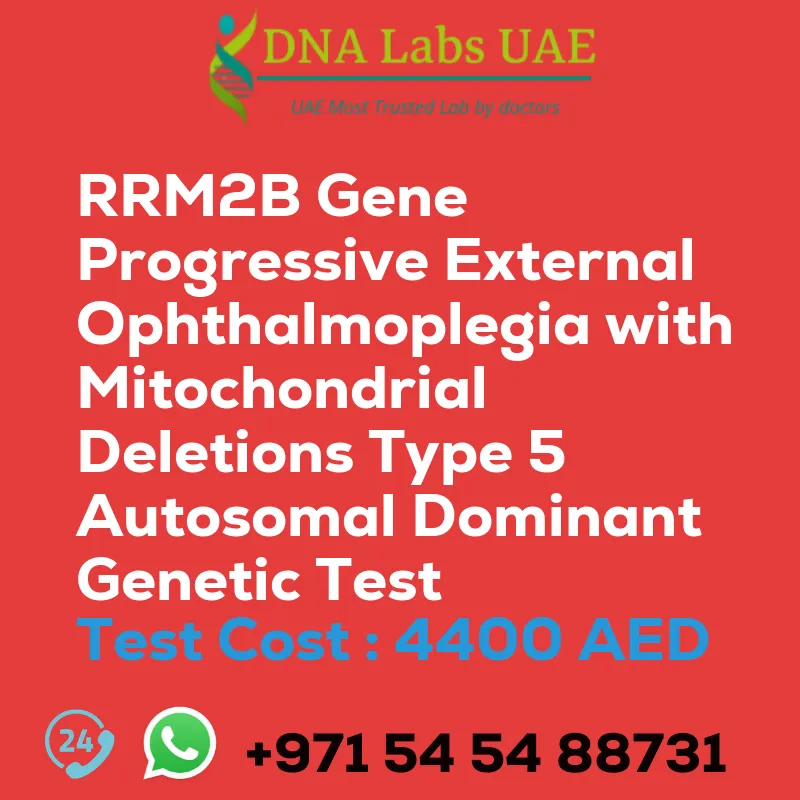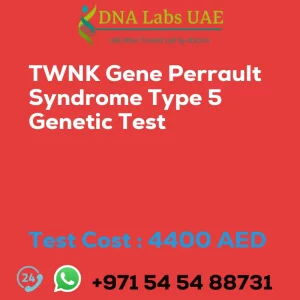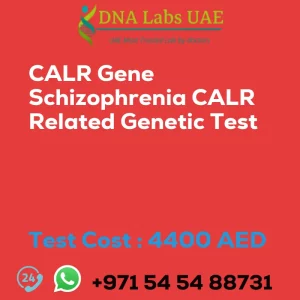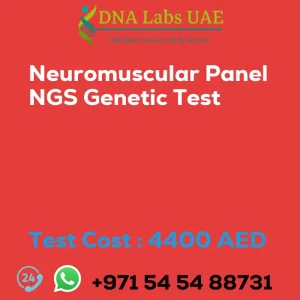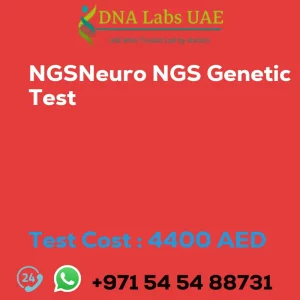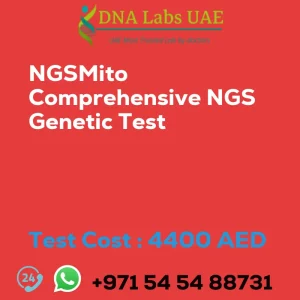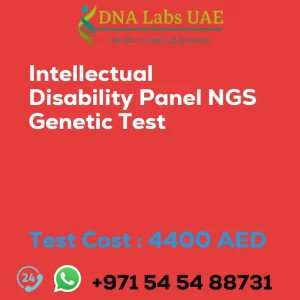RRM2B Gene Progressive External Ophthalmoplegia with Mitochondrial Deletions Type 5 Autosomal Dominant Genetic Test
Welcome to the DNA Labs UAE blog! In this article, we will discuss the RRM2B Gene Progressive External Ophthalmoplegia with Mitochondrial Deletions Type 5 Autosomal Dominant Genetic Test.
Test Name
RRM2B Gene Progressive External Ophthalmoplegia with Mitochondrial Deletions Type 5 Autosomal Dominant Genetic Test
Components
The test includes:
- NGS Technology
Price
The cost of the test is 4400.0 AED.
Sample Condition
The test can be performed using blood, extracted DNA, or one drop of blood on an FTA Card.
Report Delivery
The test results will be delivered within 3 to 4 weeks.
Method
The test utilizes NGS (Next-Generation Sequencing) technology.
Test Type
The test is specifically designed for neurological disorders.
Doctor
The test is recommended to be conducted under the supervision of a neurologist.
Test Department
The test is conducted in the Genetics department of DNA Labs UAE.
Pre Test Information
Before undergoing the RRM2B Gene Progressive External Ophthalmoplegia with Mitochondrial Deletions Type 5 Autosomal Dominant Genetic Test, it is important to provide the clinical history of the patient. Additionally, a genetic counseling session will be conducted to draw a pedigree chart of family members affected with the condition.
Test Details
The RRM2B gene is associated with a condition called progressive external ophthalmoplegia with mitochondrial deletions type 5, autosomal dominant. This condition is characterized by weakness and paralysis of the muscles that control eye movement (ophthalmoplegia), as well as other symptoms related to mitochondrial dysfunction.
NGS genetic testing is used to analyze multiple genes simultaneously. In the context of RRM2B gene testing, NGS can identify any mutations or deletions in the RRM2B gene that may be causing the condition. Genetic testing for RRM2B mutations can help confirm a diagnosis of progressive external ophthalmoplegia with mitochondrial deletions type 5, autosomal dominant. It can also provide information about the specific mutation present, which can be useful for genetic counseling and determining the risk of passing on the condition to future generations.
If you are considering the NGS genetic test for RRM2B gene mutations, it is important to consult with a healthcare professional or a genetic counselor to discuss the specific details and implications of the test.
| Test Name | RRM2B Gene Progressive external ophthalmoplegia with mitochondrial deletions type 5 autosomal dominant Genetic Test |
|---|---|
| Components | |
| Price | 4400.0 AED |
| Sample Condition | Blood or Extracted DNA or One drop Blood on FTA Card o |
| Report Delivery | 3 to 4 Weeks |
| Method | NGS Technology |
| Test type | Neurological Disorders |
| Doctor | Neurologist |
| Test Department: | Genetics |
| Pre Test Information | Clinical History of Patient who is going for RRM2B Gene Progressive external ophthalmoplegia with mitochondrial deletions type 5, autosomal dominant NGS Genetic DNA Test A Genetic Counselling session to draw a pedigree chart of family members affected with RRM2B Gene Progressive external ophthalmoplegia with mitochondrial deletions type 5, autosomal dominant |
| Test Details |
The RRM2B gene is associated with a condition called progressive external ophthalmoplegia with mitochondrial deletions type 5, autosomal dominant. This condition is characterized by weakness and paralysis of the muscles that control eye movement (ophthalmoplegia), as well as other symptoms related to mitochondrial dysfunction. NGS (Next-Generation Sequencing) genetic testing is a method used to analyze multiple genes simultaneously. In the context of RRM2B gene testing, NGS can be used to identify any mutations or deletions in the RRM2B gene that may be causing the condition. Genetic testing for RRM2B mutations can help confirm a diagnosis of progressive external ophthalmoplegia with mitochondrial deletions type 5, autosomal dominant. It can also provide information about the specific mutation present, which can be useful for genetic counseling and determining the risk of passing on the condition to future generations. It is important to consult with a healthcare professional or a genetic counselor to discuss the specific details and implications of the NGS genetic test for RRM2B gene mutations. |

